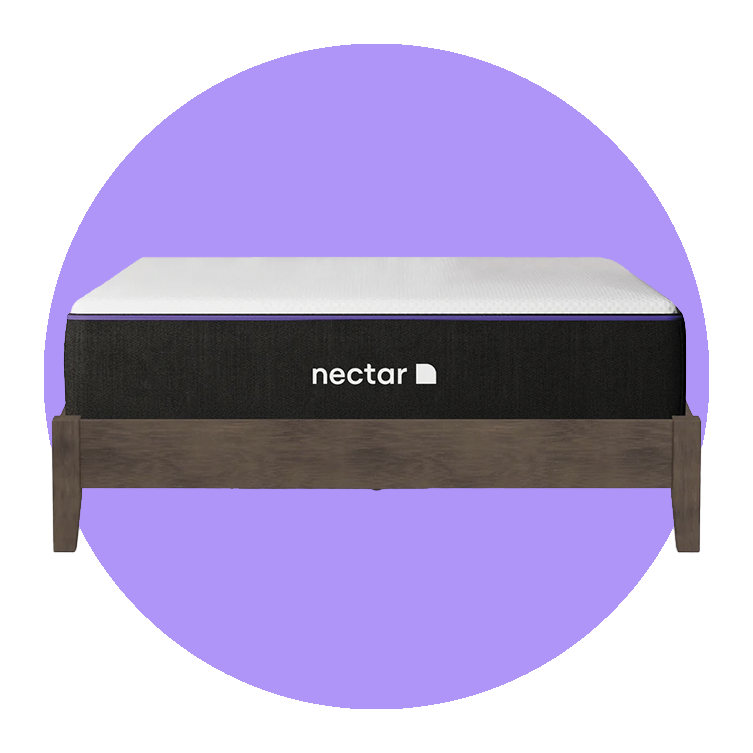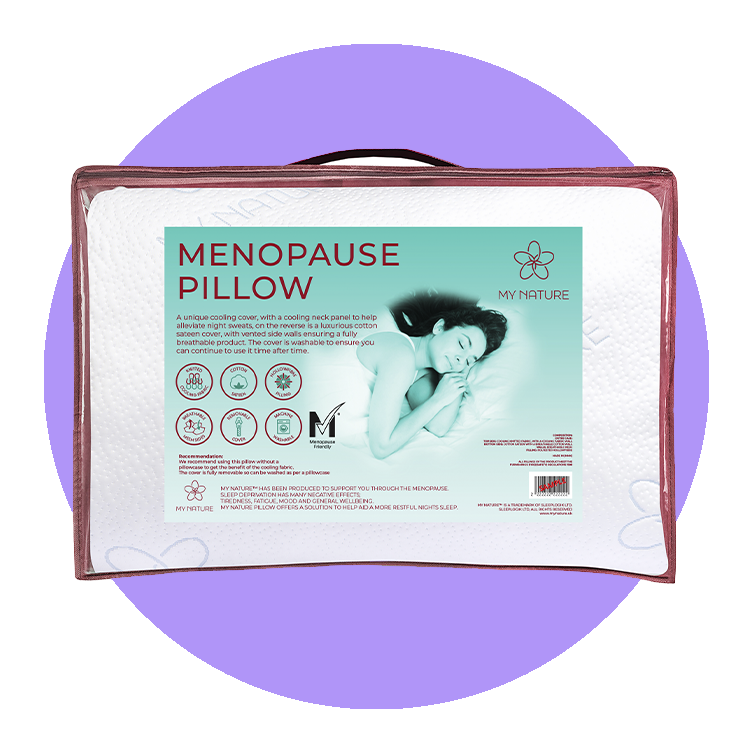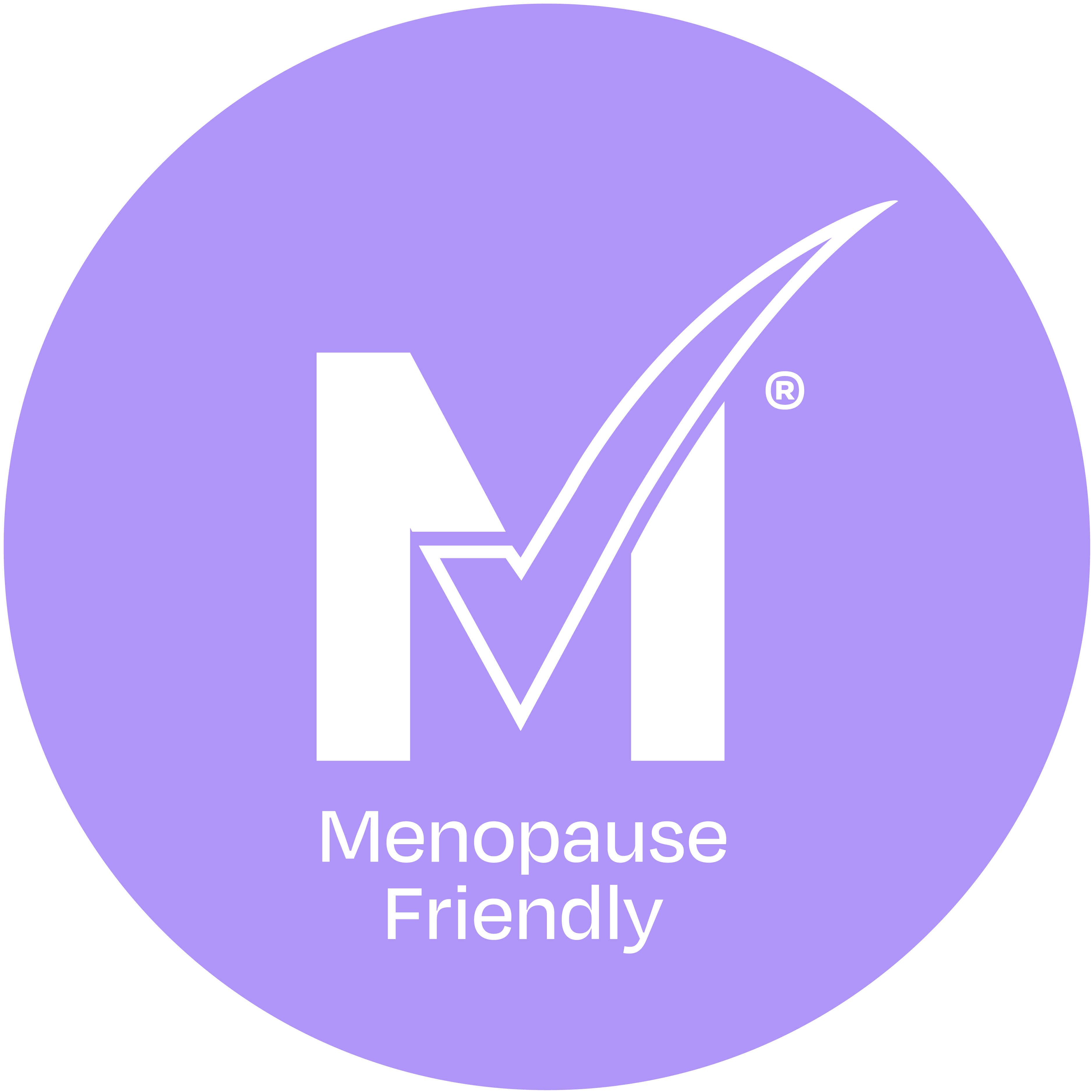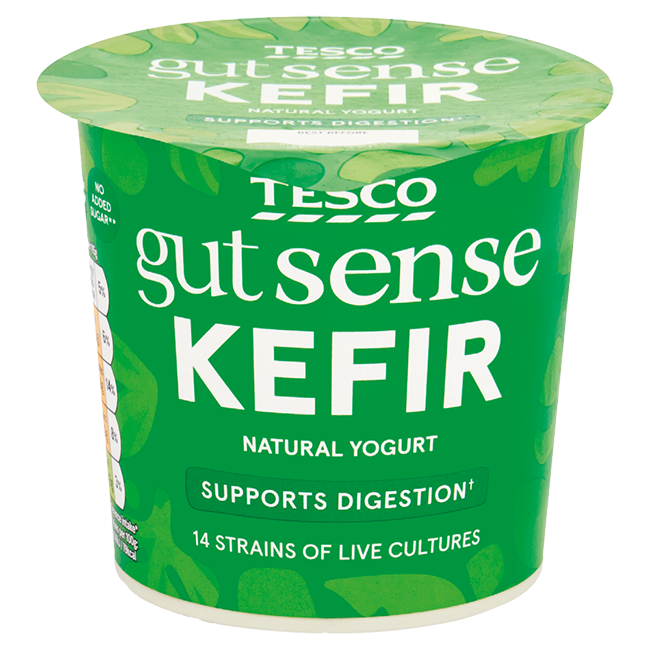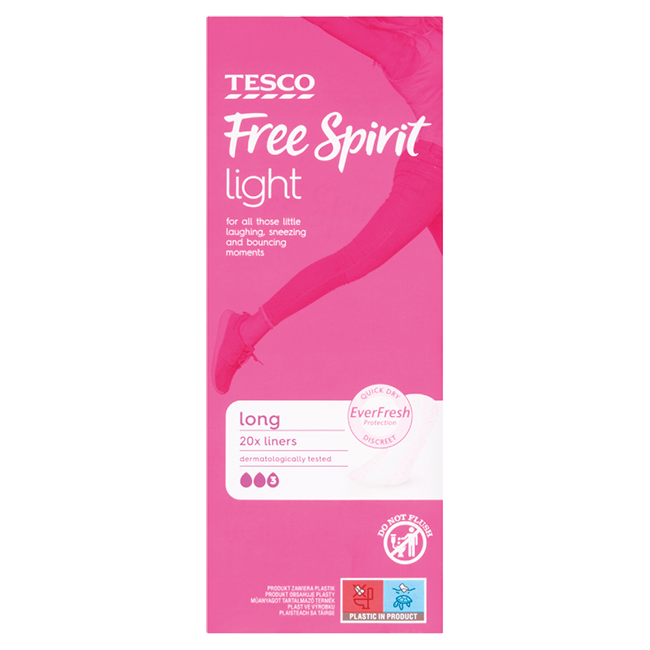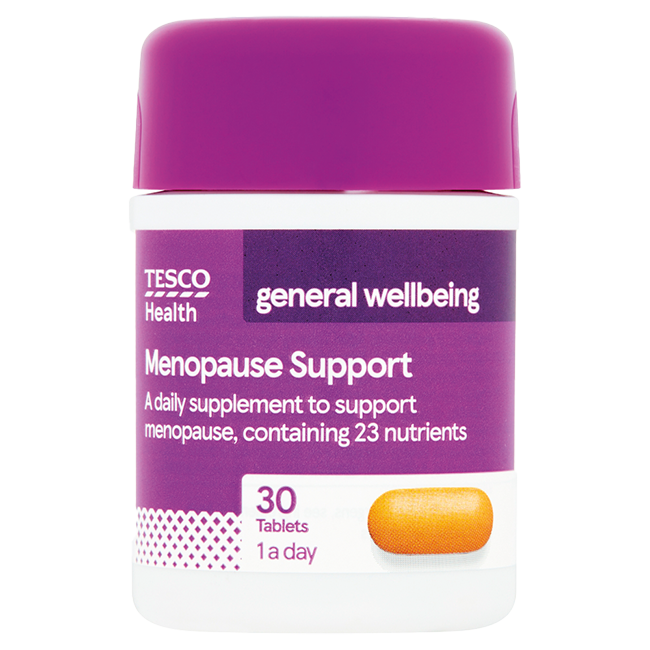Sleep
The separation game
WITH SLEEP ISSUES AFFECTING UP TO 60% OF MENOPAUSAL WOMEN, SEPARATE BEDS MIGHT SAVE YOUR MARRIAGE – BUT IT NEEDN'T BE FOREVER
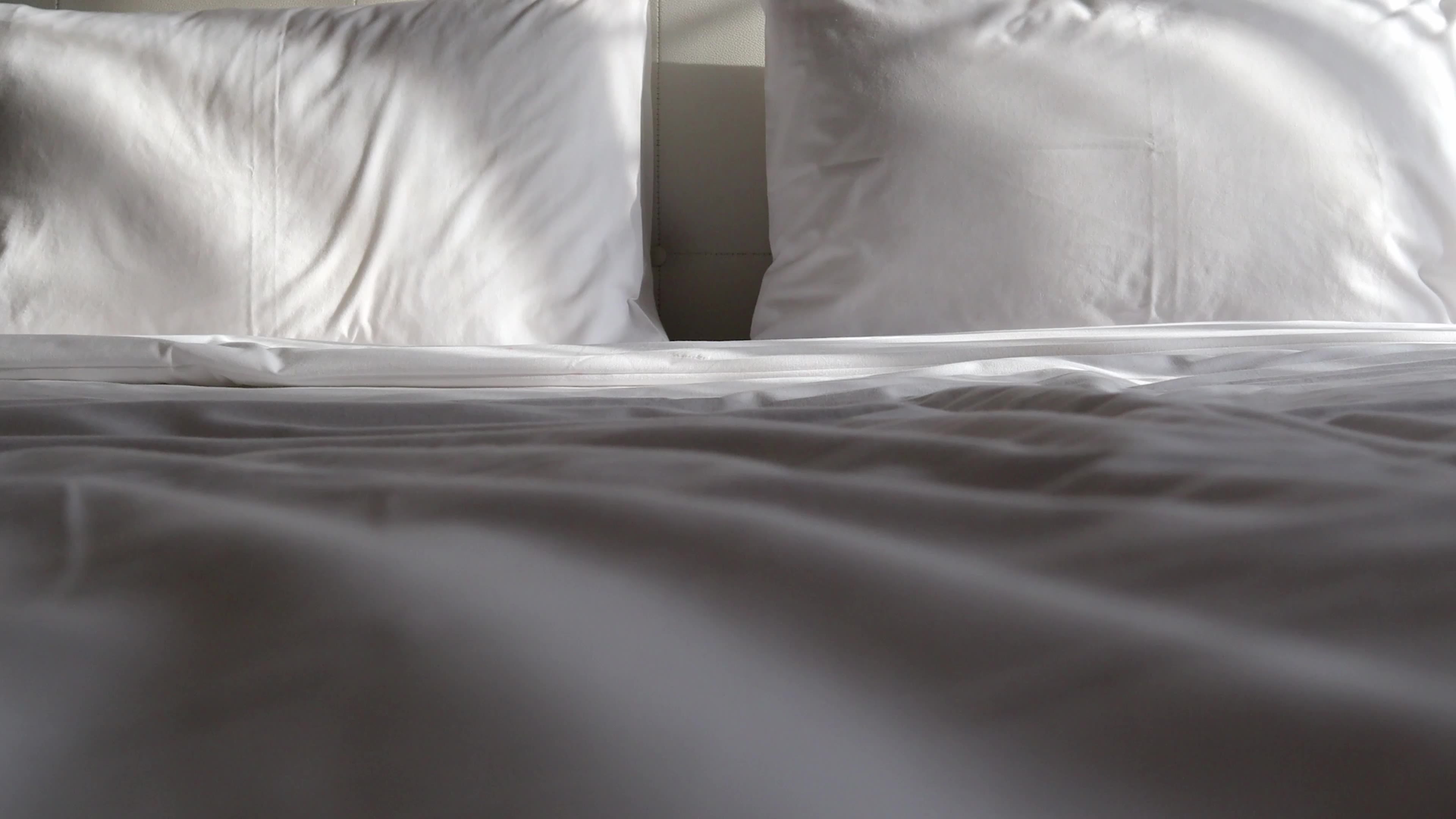
What with night sweats, frequent waking and constantly needing to pee, unbroken sleep can start to feel like a distant dream during perimenopause and menopause. While the occasional bad night is usually nothing to worry about, ongoing sleep disruption can ripple out, affecting your mood, energy levels and even your relationships.
‘Insomnia is often one of the very first signs,’ says Dr Elise Dallas, a menopause specialist at The London General Practice. ‘These changes can begin several years before the final menstrual period, sometimes as early as the late 30s or early 40s, when many women don’t yet realise that hormones could be playing a role.’
If you’re already lacking sleep, sharing your bed with a restless partner won’t help, so if they’re contributing to your sleep woes, it could be time to rethink the situation.
What happens to sleep during perimenopause?
Hormonal shifts during perimenopause can wreak havoc on your sleep-wake cycle. In fact, up to 47% of women report sleep disturbances during this stage.
‘As oestrogen, progesterone and testosterone levels decline, they disrupt the brain’s regulation of sleep, mood and body temperature,’ says Dr Elise. ‘Progesterone, which has a calming, sleep-inducing effect, also increases GABA, a neurotransmitter that promotes relaxation. A drop in progesterone can lead to anxiety, restlessness and frequent waking.’
The result? A cascade of sleep issues: insomnia, fragmented sleep, waking to pee, early-morning risings and more. While hormones are the primary culprit, other factors compound the issue – and yes, your partner might be part of that, too.
‘There’s an age-related decline in melatonin production,’ explains Dr Kat Lederle, sleep and circadian rhythm specialist. ‘Interestingly, deep sleep starts to decline earlier in men than in women. So, if your other half is keeping you awake by snoring or fidgeting, it may be time to consider separate beds.’
Is sleeping apart the solution?
Surprisingly, many experts now recommend trialling some version of a ‘sleep divorce’ during menopause. It might sound dramatic, but it doesn’t mean your marriage is in trouble. In fact, whether it’s separate beds, staggered bedtimes or the occasional night in the spare room, it may benefit your health and your relationship.
‘Some people find that sleeping next to their partner has a negative effect on their sleep,’ says Dr Kat. ‘Noise from snoring or restlessness are common factors, but body heat can also play a role. If your partner snores, your sleep is being disrupted. If this happens multiple times, it can affect not only your physiological health, but also your mental wellbeing.’
What about intimacy?
‘This depends on the couple and how the sleep separation is communicated and implemented,’ says Dr Kat. ‘For some it helps, and for others it won’t. Talk about it honestly, sharing your wants, needs and fears.’
Dr Elise agrees: ‘Until symptoms like night sweats or frequent waking settle, sleeping separately can be a helpful short-term solution. Try a break from sharing a bed to see if sleep improves.’
Importantly, physical closeness doesn’t have to end at the bedroom door. ‘Bonding and touch can happen outside the bedroom, or before going to sleep,’ says Dr Kat.
Don’t go sleepless in silence
Sleep troubles during menopause don’t have to be a silent burden, nor do they have to strain your relationship. Separate beds could be the key to reclaiming restful nights and brighter, more connected days.
Whether it’s a temporary reset or a long-term solution, prioritising sleep isn’t selfish – it’s essential. A well-rested you is better equipped to nurture both your health and your relationship.
So, if your shared bed has become a battleground of tossing, turning and overheating, consider this your permission slip to sleep solo – and wake up happier for it.
By Rhalou Allerhand
Nectar Premier Hybrid Mattress (single), £599, nectarsleep.co.uk
Enjoy cooler nights with breathable support and pressure relief, tailored for you.
MyNature Menopause Pillow, £70, Next
This luxurious pillow has a knitted top fabric to keep you cool and mesh sides to promote airflow, so it’s ideal for when night sweats strike.
Tweak your sleep
In addition to trialling a sleep divorce, there are also lifestyle changes you can make to support better sleep during perimenopause.
Stick to a regular sleep routine Developing nightly rituals can improve your sleep hygiene and promote quality slumber. ‘Maintaining a consistent sleep schedule is essential,’ says Dr Elise, ‘even at the weekend.’
Keep it dark Darkness signals your brain to produce melatonin, the hormone that regulates sleep. ‘Use blackout curtains or an eye mask to block light,’ suggests Dr Elise. ‘And add soft furnishings to absorb noise.’
Stay cool Try lowering the thermostat or switching to lightweight, breathable bedding. Think about sleeping on a breathable mattress or use a cooling pillow for comfort.
Ditch the screens Exposure to blue light from phones, tablets and TVs can delay melatonin production and throw off your sleep-wake cycle. The solution? ‘Journalling and avoiding screens at least one hour before bedtime can be effective,’ says Dr Elise.
Try aromatherapy Scents such as lavender, chamomile and bergamot have been shown to reduce tension and promote relaxation, helping you wind down before bed. Try the M-Club Restful Nights Pulse Point Roller Oil, £7.50 (8ml), Boots, on your temples, wrists or neck.
Check in with your healthcare provider ‘Hormone replacement therapy (HRT) plays a role in improving sleep by addressing the underlying hormonal imbalances that disrupt rest,’ says Dr Elise. But it isn’t for everyone – ask your doctor for advice.
Tweak your sleep
In addition to trialling a sleep divorce, there are also lifestyle changes you can make to support better sleep during perimenopause.
Stick to a regular sleep routine Developing nightly rituals can improve your sleep hygiene and promote quality slumber. ‘Maintaining a consistent sleep schedule is essential,’ says Dr Elise, ‘even at the weekend.’
Keep it dark Darkness signals your brain to produce melatonin, the hormone that regulates sleep. ‘Use blackout curtains or an eye mask to block light,’ suggests Dr Elise. ‘And add soft furnishings to absorb noise.’
Stay cool Try lowering the thermostat or switching to lightweight, breathable bedding. Think about sleeping on a breathable mattress or use a cooling pillow for comfort.
Ditch the screens Exposure to blue light from phones, tablets and TVs can delay melatonin production and throw off your sleep-wake cycle. The solution? ‘Journalling and avoiding screens at least one hour before bedtime can be effective,’ says Dr Elise.
Try aromatherapy Scents such as lavender, chamomile and bergamot have been shown to reduce tension and promote relaxation, helping you wind down before bed. Try the M-Club Restful Nights Pulse Point Roller Oil, £7.50 (8ml), Boots, on your temples, wrists or neck.
Check in with your healthcare provider ‘Hormone replacement therapy (HRT) plays a role in improving sleep by addressing the underlying hormonal imbalances that disrupt rest,’ says Dr Elise. But it isn’t for everyone – ask your doctor for advice.
Let’s talk about sex
‘When sleep is constantly interrupted, fatigue, low mood and irritability follow,’ says Sarah Mulindwa, sexual health expert and ambassador for Lovehoney. ‘This can reduce desire and make intimacy feel harder to access.’ So, what can help?
Try sleeping apart
‘Start with one or two nights a week, and communicate openly. Often, it can improve rest and make intimacy more intentional, playful and fulfilling.’
Reframe intimacy
‘Focus on affection, cuddling, massage and holding hands. Look for times when energy is higher, like mornings or weekends. Don’t be afraid to slow things down.’
Be willing to try new things
‘Toys or roleplay can reignite sexual connection and help you explore pleasure in new ways, especially if you’re struggling with low desire.’
Don’t forget self-care
‘Good sleep hygiene, cooling bedding, hormonal support or therapy can all restore energy, mood and libido. Wellbeing is essential to healthy intimacy.’
ADVERTISING FEATURE
ADVERTISING FEATURE
Supporting the menopause
TESCO HAS EVERYTHING YOU NEED TO GUIDE YOU THROUGH THIS STAGE OF LIFE SO YOU CAN THRIVE

ADVERTISING FEATURE
Supporting the menopause

Let's face it, life doesn’t come with a handbook. One minute you're feeling fine, the next you're not. At Tesco, we know the many signs and individual experiences of menopause, so we're making it simple for you to find what you need when shopping in-store.
Not only do we have our in-store pharmacy team who you can talk to but we also have products to support you, including high-strength multivitamins to balance your changing nutritional needs, probiotic yogurts to help with those less talked about effects of menopause on digestion and even cooling sleepwear designed specifically for sweaty nights.
But our commitment goes beyond products. We're proud to offer one of the most comprehensive menopause policies for our colleagues, such as menopause-friendly uniforms made from breathable materials, adjusted break times and a shareable menopause guide for staff, family and friends.
We believe no one should feel uncomfortable during a hot flush or have to explain yet again why they need five minutes to regroup their thoughts.
We're also starting important conversations through in-store menopause events – breaking down the signs, so that women don't have to tough it out alone.
So whether you want to talk to one of our pharmacists, find selected products or just need the reassurance that someone understands, know this: we get it, and we're here to help you through every sweaty, emotional, frustrating and triumphant moment. Pop into your local Tesco store today and look out for the GenM section in one of 92 stores to find exactly what you need to thrive.
TESCO HAS EVERYTHING YOU NEED TO GUIDE YOU THROUGH THIS STAGE OF LIFE SO YOU CAN THRIVE
Let's face it, life doesn’t come with a handbook. One minute you're feeling fine, the next you're not. At Tesco, we know the many signs and individual experiences of menopause, so we're making it simple for you to find what you need when shopping in-store.
Not only do we have our in-store pharmacy team who you can talk to but we also have products to support you, including high-strength multivitamins to balance your changing nutritional needs, probiotic yogurts to help with those less talked about effects of menopause on digestion and even cooling sleepwear designed specifically for sweaty nights.
But our commitment goes beyond products. We're proud to offer one of the most comprehensive menopause policies for our colleagues, such as menopause-friendly uniforms made from breathable materials, adjusted break times and a shareable menopause guide for staff, family and friends.
We believe no one should feel uncomfortable during a hot flush or have to explain yet again why they need five minutes to regroup their thoughts.
We're also starting important conversations through in-store menopause events – breaking down the signs, so that women don't have to tough it out alone.
So whether you want to talk to one of our pharmacists, find selected products or just need the reassurance that someone understands, know this: we get it, and we're here to help you through every sweaty, emotional, frustrating and triumphant moment. Pop into your local Tesco store today and look out for the GenM section in one of 92 stores to find exactly what you need to thrive.
Tesco Gut Sense Natural Kefir Yogurt, £1.20 (350g)
Try this kefir rich in probiotics and 14 strains of live cultures to help maintain a healthy gut and good microbiome, as well as support overall wellbeing.
Tesco Free Spirit Light Long Liners, £1.50 (20 рack)
For those unexpected leaks, these dermatologically tested liners have EverFresh Quick Dry technology.
Tesco Health Menopause Support Multivitamins & Minerals, £3.70 (30 tablets)
A daily supplement to support general wellbeing, containing 23 nutrients including vitamin B6, magnesium, zinc and vitamin D to support fatigue, bone, skin and nail health. Always read the label.

